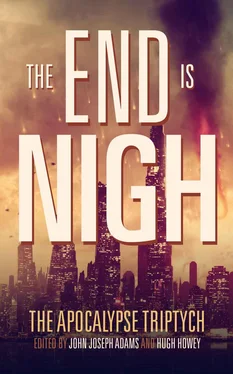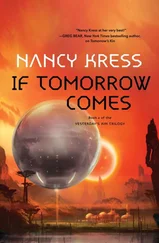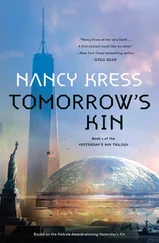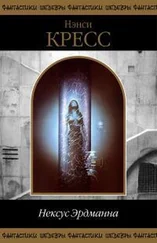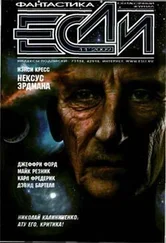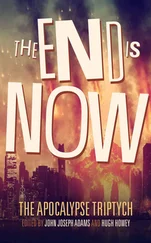“Yeah.”
“I always wanted to go to Newfoundland,” she said. “And see the whales. A blue whale. Can you imagine? This vast, majestic creature. You’d feel so small. But at the same time, so meaningful. To be part of all of this.”
“Yeah. It’s a trip, all right.”
We both dialed the number and checked in. She had enforced someone on the way over, so we were in the clear.
“You know what I was thinking,” Sara Grace said. “And this just sort of occurred to me. But isn’t it kind of funny how we’re basically getting rid of all the people who want to ask questions? Who don’t follow directions? Who, you know, have like, a mind of their own?”
“Weeding out the troublemakers.”
“Exactly.”
“Yeah. It’s funny, alright,” I said. “Sara Grace? I know you were raised in Bible school and all that shit.”
“You were, too.”
“Yeah, I know.” (It was true: church every Sunday, sitting on the hard pew, sandwiched between my mother and her mother, who still gave me a hard time that I refused to go anymore.) “So when did you start thinking, this whole God thing, maybe it’s all made up? Maybe there’s no such place as heaven, or hell, except for the one we manage to make for ourselves here on Earth?”
“I don’t know, actually,” she said, uncomfortable. “I guess I’m just not sure.”
Part of her, I think, still believed in all that: baby Jesus, right and wrong, redemption and faith.
And crucially, she still believed that whatever long look or tense moment or charged laugh we shared was just circumstance, just the pressure of surfing the harshest days in history and being the most hated people alive.
Because she wasn’t raised that way, and maybe it wouldn’t be right.
Neither was I.
But I’d given up on all that a long time ago.
• • • •
It was 2:11 p.m. on Wednesday.
We took a long walk through Prospect Park. It was a good place to find people who’d given up.
A man lying on his back in the grass looked like a good candidate. He was dressed in slacks and a button-down, hands interwoven behind his head, as he stared up at the blue skies and the rustling leaves. His shoes and socks lay haphazardly beside him.
We sat down.
“Hello,” he said, without looking at us, still staring up at the sky. “You must be enforcers. You’re probably wondering if I do this every day, or if I’m currently having some kind of nervous break.”
We didn’t say anything. Sometimes, it was better to just let them talk.
“Well, as a matter of fact,” he said, with a little chuckle, “I’m a scientist. So I’ve been overwhelmed with despair for the last ten years at least. It’s all seemed pretty hopeless for a while now.”
“A scientist! Where do you work?” Sara Grace asked eagerly.
“Columbia,” he said. “Physics department. Astronomy, actually.”
“Columbia? Me too! I’m in the nursing program. Or I was. I had to quit in order to fulfill my enforcing duties.”
“You know,” he said, musing. “It’s funny how you guys are the only ones allowed to make those breaks with your former lives. In fact, you were actually forced to. Ever think about that?”
“Well,” she said, rehearsed. She’d been over all this before. “It may seem that way, and we did have to stop doing our old jobs, but in everything else, we’re held to the same strict requirements as the rest of you. No calling up old friends, no making up with old enemies, no visiting family members one last time. No crazy spending sprees, no desperate partying. No out-of-character romances.”
I felt like her eyes met mine when she said this last part, but I wasn’t quite sure.
“Interesting,” he said. “I’m Paul, by the way,” and he shook our hands without sitting up. “Don’t let me keep you from your work. I know I look suspicious, but the truth is I’ve been coming here for years, both day and night. I like to lay in the grass and look up at the sky and think about everything that’s out there. It’s so endless, space… so full of promise and mystery. All the things we just don’t know. Now we know a little more, of course, or at least we think we do. But this is my routine, so I like to keep it up. You know, it clears the mind.”
“What do you mean, ‘ At least we think we do ’?” I asked.
“Oh, nothing,” he said, and chuckled, again. “It’s just—my colleagues and I, we’ve had our telescopes trained at the sky for a long time. A long time. A lot of telescopes. If someone was out there… if those laser cannons were out there… I think we would have seen them. Maybe. You know? But governments don’t listen to scientists. They never have. And like I said, there are a lot of things we just don’t know. Like how it’s possible that billions of souls could instantly be transported to another location within our physical plane. That would seem to defy the laws of physics. But there’s always more. If we know one thing, it’s that there’s always more.”
“Do you believe in God, Paul?” Sara Grace asked.
He brushed away the wispy brown hair from his receding hairline. “I’m not really sure,” he said, after a long pause. “I can’t one hundred percent rule out the existence of a deity. I would say, at this point, that it strikes me as a very low possibility.”
“Hmm,” she said. “Hmm.” She was thinking deeply about all this.
I was thinking about the empty skies.
“We should probably keep moving,” I said. “Next check in is in twenty-three minutes.”
• • • •
Sara Grace was wrong, though.
We weren’t like everyone else. Everyone else was supposed to go about their business, pretending like the end of the world wasn’t right around the corner.
But for us, it was the opposite. It was all we thought about, day and night. Because the only way that we could do what we were doing—the obscene, revolting, monstrous thing we were doing—was to remind ourselves constantly that this was not Real Life. None of this had anything to do with reality. For us, life as we knew it was already over.
The end was nigh, except it had already come and gone.
Otherwise it was too terrible. You couldn’t live with that kind of thing. That horror. That brutality. That inhumanity. You had to disconnect. You had to turn off.
And another thing, too. Everyone else was supposed to maintain their same old routines. See the same people. Say the same things. But thanks to some random lottery, the two of us—people who never would have had any particular reason to meet—we’d been thrown together into the most intense experience of our lives.
So for us everything had changed. And they were the ones who changed it.
• • • •
Last week—which seemed like another lifetime—when the enforcing first began, we’d each had our own kind of breakdown.
For Sara Grace, it was when she enforced a nineteen-year-old girl who’d showed up in the city looking for her mother. The girl had been put up for adoption as an infant, had never met her biological mom, and now she was afraid she’d never have the chance. “What if I get to the paradise planet, and everyone looks different, we’re all in different bodies, we all have amnesia, whatever, nothing is the same. I’ll never find her. I just had to take a chance,” she’d said. (Sara Grace recounted this whole thing to me later, sobbing so hard she could hardly talk.)
“Maybe,” the girl had said, “maybe all this time she’s been wondering about me, too. What happened to me. How I look. How I grew up. All I have is her name. There’s a lot of people with her name here. I was just going to go down the phonebook and see what I can find. I think, when I hear her voice, I’ll know.”
Читать дальше
